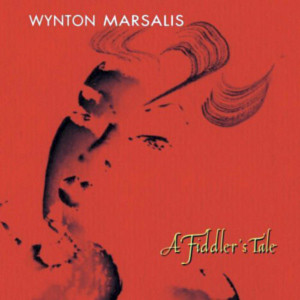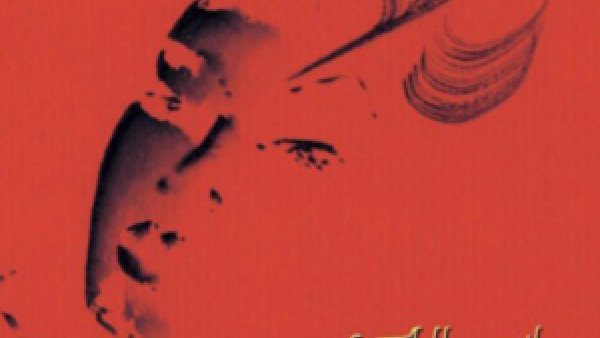The Classical Wynton Marsalis Turns Up Again
‘MAN, that’s hard to play,’‘ the trumpet virtuoso Wynton Marsalis said recently. ‘‘That’s what goes through the minds of trumpet players when they hear it.’‘
Mr. Marsalis, the artistic director of Jazz at Lincoln Center, was speaking of a piece outside his usual domain, Stravinsky’s 1918 masterpiece ‘‘L’Histoire du Soldat’‘ (’‘The Soldier’s Tale’‘). When he performs the work on Friday evening with the Chamber Music Society of Lincoln Center at Alice Tully Hall, he will be giving his first public performance of classical music in 10 years. He will also play in the New York premiere of ‘‘A Fiddler’s Tale,’‘ his own reinterpretation of the music and scenario of ‘‘L’Histoire.’‘
The idea of this double bill dates from 1995, when Mr. Marsalis played music by Jelly Roll Morton with the society. Also on the program was ‘‘L’Histoire,’‘ which Mr. Marsalis had studied as a teen-ager but never played. Now he was fascinated by what he heard in rehearsals, especially the diabolical cornet part.
‘‘We could see that he got to tapping his feet, and that he was thinking, probably about what it would be like to go out and nail that piece,’‘ said David Shifrin, the artistic director of the Chamber Music Society. ‘‘It sparked something in him, so it didn’t take a whole lot of arm twisting to get him to that point.’‘
But playing ‘‘L’Histoire’‘ was only part of what Mr. Shifrin hoped to get from Mr. Marsalis. He also wanted the trumpeter to compose a companion piece to the Stravinsky, using the same quirky instrumentation and a similar scenario. This idea gave Mr. Marsalis pause.
‘‘No matter what I do, I’m not going to compare myself to Stravinsky,’‘ said the 36-year-old Mr. Marsalis, who won a Pulitzer Prize for composition last year. ‘‘That would be ridiculous. You have to accept who he is and do what you can do, and hope that what you do is on some level of quality. If you imagine that you can be as good as Stravinsky, you’re putting pressure on yourself that you cannot hope to live up to.’‘
‘‘L’Histoire du Soldat,’‘ as fresh and lean and wry today as it was 80 years ago, was intended as a portable theater piece for narrator and a handful of actors and musicians. Stravinsky declared that it made a break with his previous Russian nationalism. It also represented his first embrace of a nascent Neo-Classicism. And it included his first explicit use of jazz, though what he knew of it was derived entirely from sheet music.
The work is based on the eternal tale of a young man who sells his soul to the Devil and achieves fame and fortune, but loses all when the Devil calls in the debt. ‘‘A Fiddler’s Tale’‘ retains the outline of Stravinsky’s scenario but brings the action up to the present. And for reasons Mr. Marsalis declined to discuss, it turns the Devil into a record producer.
The dual project has not been easy. Apart from the obvious difficulty of writing a piece modeled on ‘‘L’Histoire’‘ without stifling his own compositional voice, Mr. Marsalis has had to brush up on his classical trumpet technique. He is, after all, taking on not some modest Baroque trumpet concerto but a cornet part typically regarded with dread.
‘‘He’s had a brand-new cornet made for this, and he’s been practicing on it, and believe me, he’s finding out how difficult the Stravinsky is,’‘ said Rob Gibson, the executive director of Jazz at Lincoln Center. ‘‘Wynton’s the kind of guy who does a project like this once and doesn’t repeat it. I don’t think he’s ever going to want to play ‘L’Histoire’ again.’‘
Indeed, Mr. Marsalis finds it awkward to switch back and forth between jazz gigs and classical concerts both because of the different playing techniques and because his standards are uncompromising.
‘‘In jazz, you need a heavier attack because the rhythm section is playing,’‘ he said. ‘‘You don’t have to worry so much about balance. In jazz, you’re always playing with drums, so they keep the time going on. You’re not used to being without that and having to play an independent time. So if you’re not dedicated full time to classical music, and you think you’re just going to come in and play on your top level, you’ll end up giving mediocre classical performances. And then your jazz playing will suffer too.’‘
Where Mr. Marsalis is concerned, Mr. Shifrin disagrees. ‘‘There are very few musicians who have his ability to literally cross over,’‘ he said. ‘‘I don’t know anyone who can play classical trumpet better than Wynton, when he has devoted his attention to it.’‘
Certainly, if Mr. Marsalis were to turn his back on ‘‘L’Histoire,’‘ it would not be for lack of interest. In fact, once he starts talking about the piece, it’s hard to turn his attention to anything else. As he grabbed his score of ‘‘L’Histoire,’‘ Mr. Marsalis’s sudden animation was obvious even over the telephone. He stopped wolfing down the dinner he was eating and moved to the piano to make his points.
‘‘The ground rhythm in the bass exists on its own,’‘ he said. ‘‘It keeps going, and everything else has to go on around it. The unbelievable thing is the unrelatedness of the ground rhythm to the rhythms layered above it. That’s really more like African music than jazz.’‘
As for the endlessly discussed question of the degree to which Stravinsky, who had never heard jazz, might have been influenced by it in ‘‘L’Histoire,’‘ Mr. Marsalis finds it irrelevant.
‘‘He’s not really using jazz,’‘ he said. ‘‘He’s just using the syncopations. But a lot of times, there’s a certain spirit in the age that permeates everybody, and this music is about all kinds of things from his age coming together. Man, with his level of musical intelligence, he didn’t need to have access to much jazz.
‘‘The real genius of Stravinsky is the orchestration,’‘ Mr. Marsalis added, turning from the piano to his trumpet. ‘‘This piece is caught between two worlds, Stravinsky’s existing sound and the sound of a small jazz band with trumpet and trombone and clarinet.’‘ He plunged into the theme of the ‘‘Royal March,’‘ the toughest moment in the piece. The first time it sounded rough, but he played it twice more with a seemingly effortless grace.
PERHAPS because the first rehearsal was only five days away and his piece was not yet finished, Mr. Marsalis seemed less eager to talk about ‘‘The Fiddler’s Tale.’‘ ‘‘It’s a strange amalgam,’‘ he said. ‘‘It’s the same sequence and number of movements, sometimes the same harmonic bed and rhythmic pattern. And sometimes not.’‘ Occasionally, ‘‘L’Histoire’‘ pokes through the musical fabric and reveals itself unambiguously. More often, Mr. Marsalis uses the Stravinsky as a springboard for his own imagination.
Back at the piano, he played an ostinato bass from ‘‘L’Histoire’‘ along with the dry chatter of the violin above it. But a remarkable transformation occurred: the repeated bass pattern was disrupted by jagged syncopation; the ‘‘violin’‘ abandoned its stiff rhythms and began to swing; the harmonies slid into the seductive clashes of the blues. From then on, the movement was Mr. Marsalis’s baby.
‘‘There’s no tradition of doing this,’‘ he said with a laugh. ‘‘When Duke Ellington did Tchaikovsky, a jazz version of the classics, he could work with long melodies. But Stravinksy’s thematic material is very short and put together from small units.’‘
To Mr. Shifrin’s relief (and undoubtedly Mr. Marsalis’s), ‘‘A Fiddler’s Tale’‘ was finished just in time for the first rehearsal,
‘‘What’s most remarkable to me is that Wynton has really taken the Stravinsky and gone through a metamorphosis with it,’‘ said Mr. Schifrin, who plays clarinet in these pieces. ‘‘It’s full of New Orleans jazz and Dixieland and blues and ragtime and the Charleston, so he has made the music very much his own.’‘
Mr. Marsalis, Mr. Shifrin and the other six musicians come from both the Chamber Music Society and Jazz at Lincoln Center. Mr. Gibson says he hopes that both groups will benefit from an intermingling of audiences. ‘‘We’re taking a great masterwork by Stravinsky and using our artistic director who has a big name,’‘ he said, ‘‘because the Chamber Music Society, as great as it is, doesn’t have anybody with a name the size of Wynton Marsalis, from a marketing point of view.’‘
And clearly, Mr. Marsalis’s name sells tickets. Before the New York concerts, the Chamber Music Society is taking the program on an 11-city national tour. ‘‘In the past there were many presenters who were interested in having us, but they have large halls not conducive to chamber music,’‘ said Jacqueline Taylor, the society’s executive director. ‘‘Suddenly you have Wynton involved, and we’re appearing in a couple of 1500-seat venues. They would not have felt comfortable booking us for chamber music by Beethoven and Brahms. But with Wynton’s name, they have the ability to try it.’‘
Mr. Marsalis professed to have no interest in marketing, ‘‘as long as it’s not disrespectful to Stravinsky.’‘ He turned the conversation back toward ‘‘L’Histoire.’‘ Why does it still sound so startling, as if it had been composed yesterday.
For Mr. Marsalis, the answer is rooted in multiculturalism. ‘’ ‘L’Histoire’ is part of a whole 20th-century movement toward integration,’‘ he said. ‘‘It was definitely an artistic objective, and it still hasn’t been completed. Stravinsky represents that, Picasso represents that, and Ellington represents that.’‘
by K. Robert Schwarz
Source: The New York Times


